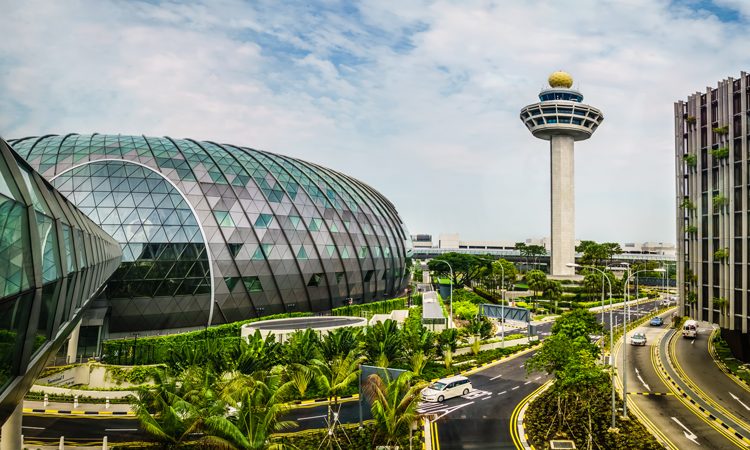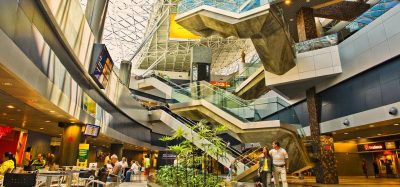CAG renews commitment to forge a sustainable airport
- Like
- Digg
- Del
- Tumblr
- VKontakte
- Buffer
- Love This
- Odnoklassniki
- Meneame
- Blogger
- Amazon
- Yahoo Mail
- Gmail
- AOL
- Newsvine
- HackerNews
- Evernote
- MySpace
- Mail.ru
- Viadeo
- Line
- Comments
- Yummly
- SMS
- Viber
- Telegram
- Subscribe
- Skype
- Facebook Messenger
- Kakao
- LiveJournal
- Yammer
- Edgar
- Fintel
- Mix
- Instapaper
- Copy Link
Posted: 9 September 2022 | International Airport Review | No comments yet
Changi Airport Group has revealed its latest Sustainability Report, ‘Forging A Sustainable Changi’, outlining its sustainable vision, approach and outcomes from the financial year ending 31 March 2022.


Changi Airport Group (CAG) has released its latest Sustainability Report, ‘Forging A Sustainable Changi’, which outlines CAG’s sustainability vision, approach and outcomes from the financial year ending 31 March 2022.
The report covers CAG’s activities across Changi Airport’s four passenger terminal buildings, the Changi Airfreight Centre and the aircraft operating areas in its drive to build a sustainable Changi Airport with airport partners and the community.
Highlights of the FY2021/2022 Sustainability Report include:
Environment
Zero carbon growth until 2030, capping absolute carbon emissions at 2018 levels
CAG is committed to cutting carbon emissions while improving resource efficiency. CAG will cap absolute carbon emissions at 2018 levels until 2030, even with the growing number of passengers that Changi Airport is expected to serve in the years ahead. CAG strives towards a Net Zero aspiration by 2050 through the use of new technologies and the increased adoption of renewable energy.
CAG’s inaugural climate resilience study mapped climate impacts up to 2050
CAG embarked on a detailed assessment of the impacts of evolving climate factors, such as rising ambient temperatures and greater rainfall intensity. Climate risks are mapped up to 2050 for airport-wide adaptation and solutions are being developed to address them. For instance, in response to increased rainfall, CAG has expanded Changi’s drainage network and installed sensors linked to a real-time data dashboard for better flood risk management.
5.9 per cent decrease in overall water consumption
Apart from improving chiller condensate and waste water recycling capabilities, CAG continues to save water. Changi has reduced the use of potable and non-potable water, ranging from toilets and building cooling systems to irrigation and cleaning.
11 per cent of waste diverted from incineration
CAG optimises waste management by reducing waste at source, encouraging good recycling practices and implementing effective waste collection systems. Close collaboration and communication with licensed contractors, airport partners and cleaners have enabled CAG to identify opportunities to use resources more efficiently. Projects embarked on over the past year included the upcycling of building materials and composting of horticultural waste.
Social
CAG continued to focus efforts in creating and maintaining an empowering environment for employees to develop professionally while making a purposeful difference to the growth of Singapore’s air hub, aviation community and Singapore. These are the notable awards won:
- Ranked top three most attractive employer by Randstad for the eighth consecutive year
- Recipient of Community Chest Volunteer Partner Award 2021
- Won Gold Award in HR Excellence in Crisis Management and Recovery
- Winner in Aviation, Transport & Supply Chain Category in S100 Leading Graduate Employers Awards.
Governance
Zero work-related fatalities amongst employees
With a target of zero workplace fatalities, CAG actively monitors operations at Changi Airport (SIN) for potential occupational risks and implemented risk mitigation measures such as safe work practices, and relevant employee training. Multiple reporting channels are available for the airport community to report any safety hazards.
Anti-Bribery Management System (ISO 37001) Certified
CAG has zero tolerance for bribery and has operationalised this commitment via the CAG Anti-Bribery Management System (ABMS).
Related topics
Airport development, Airside operations, Emissions, Passenger experience and seamless travel, Passenger volumes, Sustainability, Sustainable development, Terminal operations


















